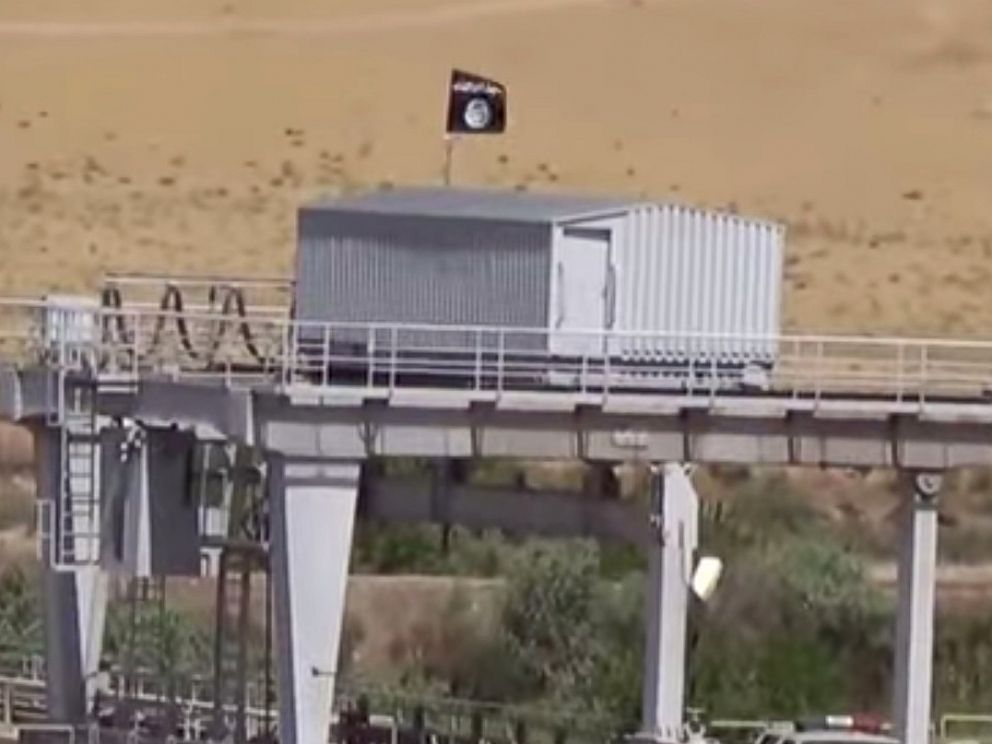"Why control of a terrifying dam in Iraq is life or death for half million people"
"Why Control of a Terrifying Dam in Iraq is Life or Death for Half Million People" is the headline of an article at abcnews.com from August 7, 2014 by Lee Ferran and Mazin Faiq. The authors refer to the Islamic State take over of the Mosul Dam on the Tigris a few weeks ago, later re-taken by Kurdish Peshmerga forces with U.S. air support.
The article points out the critical question such control poses for "the millions of Iraqis who live downstream of the Mosul Dam all the way down the Tigris to Baghdad, because if the dam (is) taken over, ISIS would be in control of what effectively could be a major weapon of mass destruction -- one that the U.S. military said in 2006 was, without the help of brutal jihadists, already 'the most dangerous dam in the world.'"
The authors cite the inherent danger the dam poses, even without a rebel act -- "It wouldn't even have to be sabotaged to fail -- if an extremist group took control and wanted the dam to break, they may be able to simply do nothing."
The problem is that the "gargantuan dam, built in the mid-1980s, was constructed on 'a foundation of soluble soils that are continuously dissolving, resulting in the formation of cavities and voids underground that place the dam at risk for failure,'" as the article quotes from an urgent letter sent from David Petraeus, then commanding general of the U.S. Army, and Ryan Crocker, then U.S. Ambassador to Iraq, to Iraqi Prime Minister Nouri al-Maliki in 2007.
Ferran and Faiq describe how the dam must be constantly reinforced by engineers "continously pumping in literally tons of grout" so as to fill in the holes and keep the dam "upright."
The authors cite U.S. experts, who say any failure of the dam could be "catastrophic." They refer to a 2011 report written by a USACE official and published in Water Power magazine that estimated failure "could lead to as many as 500,000 civilian deaths."
READ MORE HERE...
One of the most devastating judgments pronounced by Jeremiah the hebrew prophet on the "land of Babylon" is the rising of "tumultuous waves" of the "sea" -- a euphemism for the Euphrates/Tigris river system -- which overwhelm the land of Babylon. Following the flood event, the rivers are "dried up" in a drought so severe that the land becomes literally uninhabitable, and utter desolation is the final outcome of the judgments, so that the land remains a "horror" among the nations, a perpetual sign of the judgment of God on a people who had struck at Zion once Israel was back in the land for the final time.
This article drives home the point like a ton of bricks that just such a scenario of a major flood event that causes incredible devastation in the "land of Babylon" could very well occur, and that without extraordinary and constant measures, WILL occur, just as decreed by Jeremiah.
But first the fires burn the cities, then the announced abandonment of the land by the reconstructionists, and then a war with and defeat by the "Medes" -- the modern-day Kurds.
And then the flood.
When Babylon is burning, know that the flood will come. No one can stop it. Iraq is Babylon of Jeremiah 50 - 51.
The article points out the critical question such control poses for "the millions of Iraqis who live downstream of the Mosul Dam all the way down the Tigris to Baghdad, because if the dam (is) taken over, ISIS would be in control of what effectively could be a major weapon of mass destruction -- one that the U.S. military said in 2006 was, without the help of brutal jihadists, already 'the most dangerous dam in the world.'"
The authors cite the inherent danger the dam poses, even without a rebel act -- "It wouldn't even have to be sabotaged to fail -- if an extremist group took control and wanted the dam to break, they may be able to simply do nothing."
The problem is that the "gargantuan dam, built in the mid-1980s, was constructed on 'a foundation of soluble soils that are continuously dissolving, resulting in the formation of cavities and voids underground that place the dam at risk for failure,'" as the article quotes from an urgent letter sent from David Petraeus, then commanding general of the U.S. Army, and Ryan Crocker, then U.S. Ambassador to Iraq, to Iraqi Prime Minister Nouri al-Maliki in 2007.
 |
| PHOTO: Islamic State flag at Mosul Dam |
The authors cite U.S. experts, who say any failure of the dam could be "catastrophic." They refer to a 2011 report written by a USACE official and published in Water Power magazine that estimated failure "could lead to as many as 500,000 civilian deaths."
READ MORE HERE...
One of the most devastating judgments pronounced by Jeremiah the hebrew prophet on the "land of Babylon" is the rising of "tumultuous waves" of the "sea" -- a euphemism for the Euphrates/Tigris river system -- which overwhelm the land of Babylon. Following the flood event, the rivers are "dried up" in a drought so severe that the land becomes literally uninhabitable, and utter desolation is the final outcome of the judgments, so that the land remains a "horror" among the nations, a perpetual sign of the judgment of God on a people who had struck at Zion once Israel was back in the land for the final time.
This article drives home the point like a ton of bricks that just such a scenario of a major flood event that causes incredible devastation in the "land of Babylon" could very well occur, and that without extraordinary and constant measures, WILL occur, just as decreed by Jeremiah.
But first the fires burn the cities, then the announced abandonment of the land by the reconstructionists, and then a war with and defeat by the "Medes" -- the modern-day Kurds.
And then the flood.
When Babylon is burning, know that the flood will come. No one can stop it. Iraq is Babylon of Jeremiah 50 - 51.
Labels: Judgment 8 - Flood



0 Comments:
Post a Comment
Subscribe to Post Comments [Atom]
<< Home